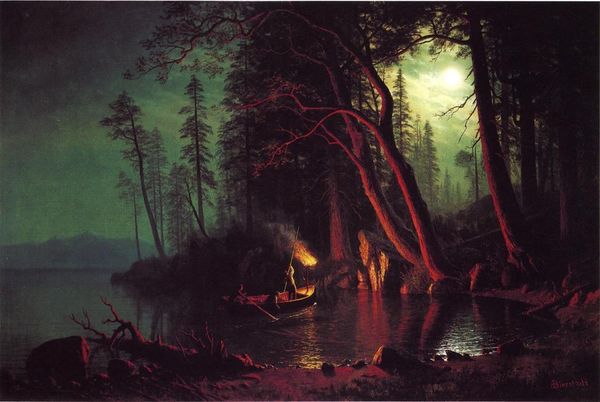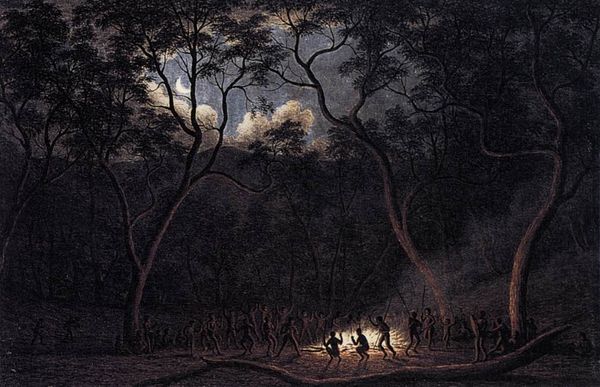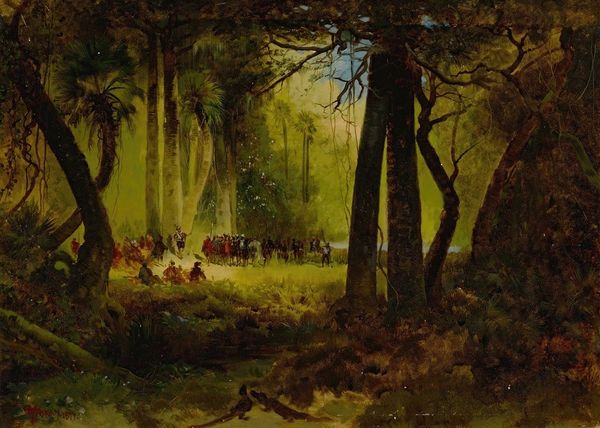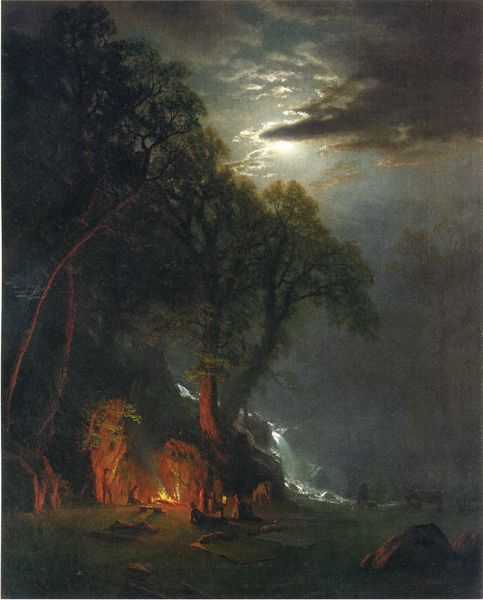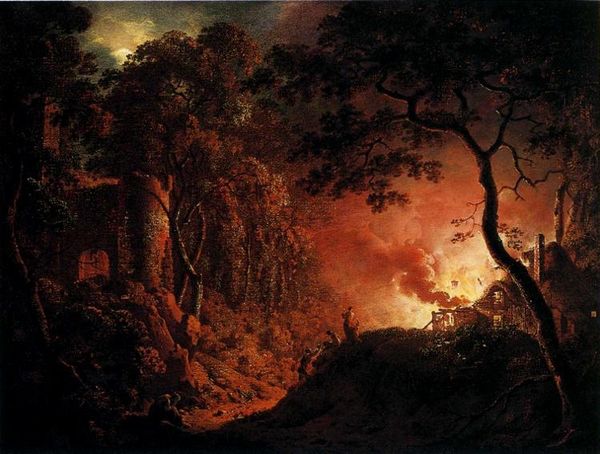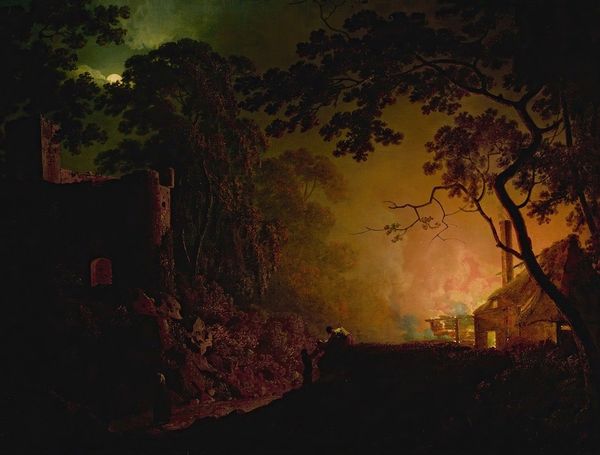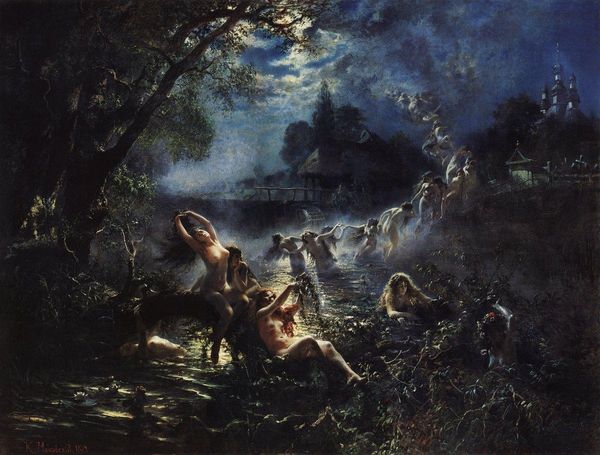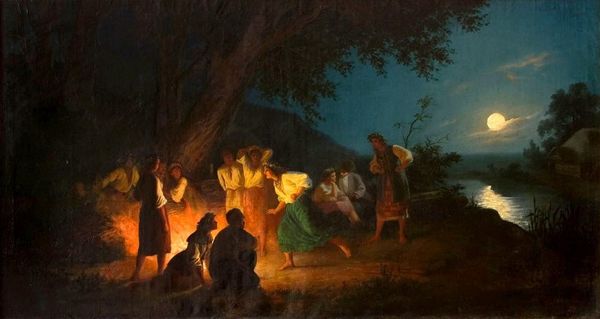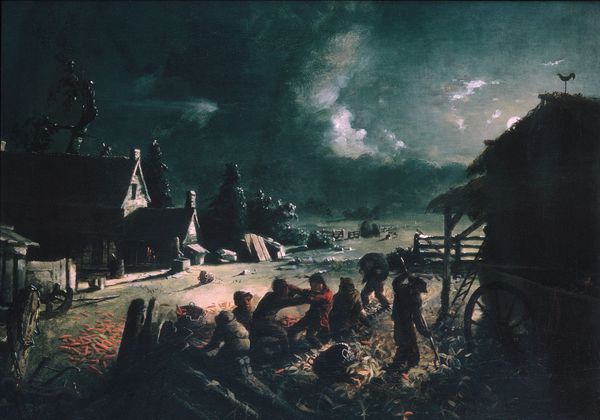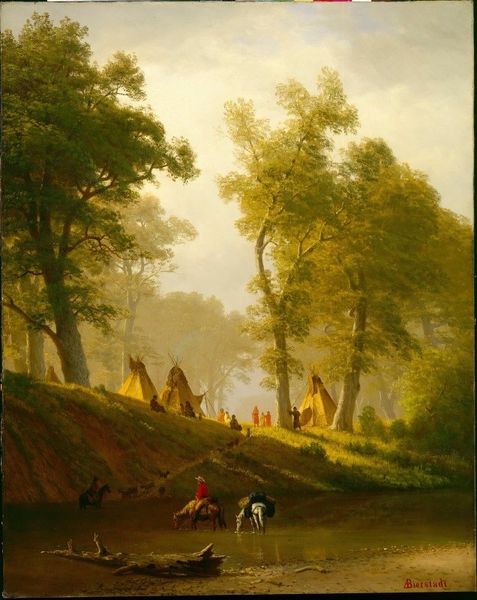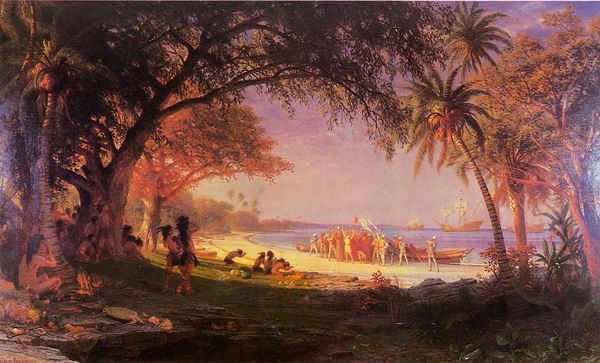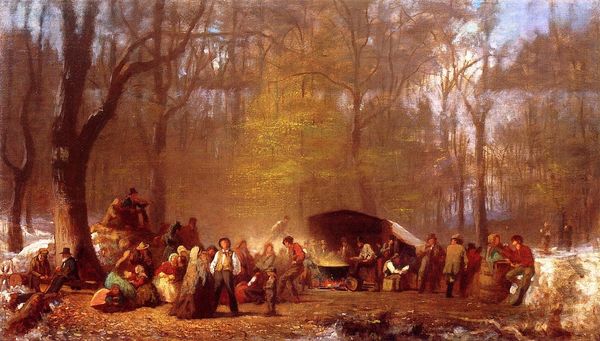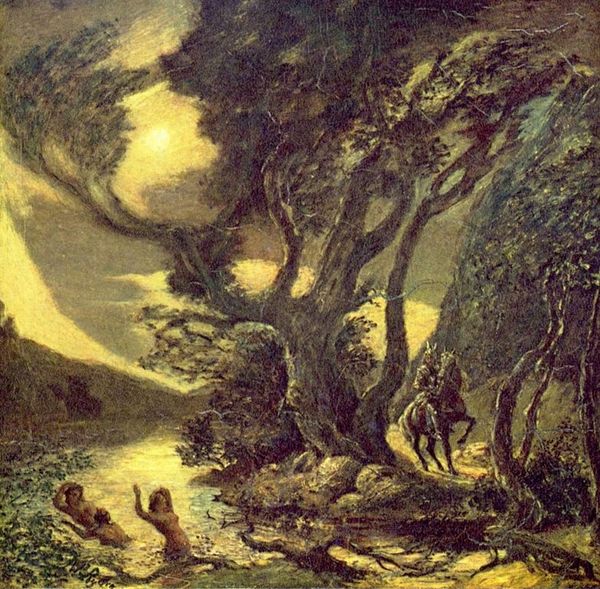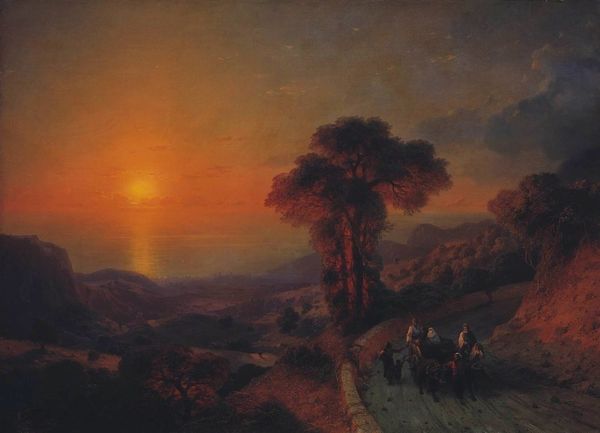
painting, plein-air, oil-paint
#
painting
#
plein-air
#
oil-paint
#
landscape
#
figuration
#
forest
#
geometric
#
group-portraits
#
romanticism
#
hudson-river-school
#
water
#
cityscape
#
genre-painting
#
history-painting
Copyright: Public domain
Albert Bierstadt created this painting, Oregon Trail, to capture the spirit of westward expansion in 19th century America. But what does this image tell us about the social and institutional forces at play during that period? Look at the idealized depiction of pioneer life. The scene is peaceful, almost romantic. A group of settlers gather around a campfire, their covered wagon parked nearby. But consider the context. This painting was made during a time of intense conflict between settlers and Native Americans. Manifest Destiny, the idea that American settlers were destined to expand across the continent, was the prevailing ideology, and it was used to justify the displacement and violence against indigenous people. Bierstadt's painting doesn't explicitly address these issues, but it reflects the dominant cultural narrative of the time. Art historians use sources such as government documents, newspapers, and personal letters to analyze the social and institutional context in which art is created and consumed. By doing so, we can gain a more nuanced understanding of the complex relationship between art and society.
Comments
No comments
Be the first to comment and join the conversation on the ultimate creative platform.
